Emile Bootsma of Hotel Adlon Berlin: The Interview
Managing Director of Germany’s most prestigious hotel talks Budapest, “poor, but sexy” Berlin, and why having a sense of humor is a must.
Ask a German about his country’s most prestigious hotel and you are guaranteed to receive only a handful of answers. There is a good chance the Hotel Brenners Park located in Baden-Baden, close to the heart of Germany’s wine growing region will be mentioned.
A more urban recommendation would be the Hotel Atlantic Kempinski in Hamburg, Germany’s second largest city. The hotel built in 1909 has gained nationwide recognition for being the permanent residence of Deutschrock superstar Udo Lindenberg.
Lastly, any German interested in literature might just recommend the Hotel Nassauer Hof in Wiesbaden: the 5-star superior hotel counts Russian writer Fyodor Dostoyevsky among its guests who in 1865 lost his fortune in the hotel’s casino. He thus wrote The Gambler in order to evade bankruptcy.
The one name you will come across in any case is that of the Hotel Adlon Berlin. Being a household name in Germany for almost a century now it is safe to say that the Adlon can be regarded as Germany’s most prestigious and one of the country’s most luxurious establishments.
Inaugurated in 1907 by the Kaiser himself the Adlon allowed Germany to go toe-to-toe with Britain and France which already had what at that time was a novelty: a luxury hotel.
What started with aristocratic fame later turned into a popular refuge with the German Bildungsbürgertum, Thomas Mann and Albert Einstein were common guests of the hotel. And today? Re-opened in 1997 after Germany’s reunification, the Adlon, again, ranks highly in the first league of German superior hotels. – Only its surroundings seem to have changed entirely.
Ever since the fall of the Berlin Wall Germany’s capital has seen a construction frenzy that would remodel the city almost completely. What does Berlin’s reconstruction mean for 5-star superior hotels like the Adlon? And how does leading one of the Leading Hotels Of The World in Berlin compare to doing the same in other cities?
One man who could answer these questions in a heartbeat is Emile Bootsma. With a 21-year career in luxury hotel management Mr Bootsma is not only vell-versed with managing a superior establishment. As Europe is his third continent to work in, he is also qualified to put things into a wider perspective.
In our interview Mr Bootsma goes at length explaining the differences between premiere hotels in Central and in Western Europe, about world-class concierge service and about why humor is key for a good working environment.
Southbound view on the Brandenburg Gate | Photo: Hotel Adlon
EMILE BOOTSMA OF THE HOTEL ADLON BERLIN: THE INTERVIEW
Q | Before you came to Berlin you were Managing Director of the Kempinski Hotel Corvinus in Budapest.
How different are working environments in both cities?
Work and professional routines are pretty much the same. They are the same almost anywhere in the world, I would say.
With Budapest and Berlin the big difference are the people: Many Hungarians are trapped in an Eastern European type of thinking, an ‘old’ type of thinking. Luckily this is slowly changing and the new generations are totally different thinkers. They are more entrepreneurial, wanting to break away from old business thinking and habits.
Q | An old type of thinking? How do you mean?
Let me give you some details. In Germany, for axample, people live up to the stereotype. They are attentive and proactive, and things like reliability and punctuality are key. People will communicate openly and they are always looking to optimize results.
In Budapest, things are a little different. Due to their past, Hungarians keep more to themselves. Still today, not everyone will openly voice their opinion. This, of course, leads to all kinds of misunderstandings. Just to give you an idea: let’s say an employee is working on a certain task. He misses to do one little thing that is important, but that also goes beyond the standard protocol of the task. I would then ask him “Why didn’t you do that?” – and the reply I get is “Why didn’t you ask?”. History still plays a big role in Hungary.
Q | By ‘history’ you mean the country’s Socialist past?
Yes, of course. The times when taking initiative or being proactive could have led to problems can still be felt.
But once Hungarians open up, they will be more open than you have ever experienced. They have big hearts and will basically treat you like family. For instance, you can have a work-related conversation and a moment later your Hungarian colleague is telling you all about his private life or how his grandfather distills the local schnapps [laughs].
Q | Let’s turn toward guests. As a hotel chain, are clients of Kempinski hotels comparable in regard to their wants and needs?
In a nutshell, who is visiting the Adlon?
First, I have to say that we don’t see ourselves as a chain. We are a collection of individual hotels that have to “fit in” and “fit out”, as we put it. Kempinski hotels seek to adapt to their environment while at the same time they present their unique spirit and characteristics.
Regarding guests we deal with clients from all walks of life. However, the Adlon is in a special position. Most premiere hotels throughout the world have 95% of their clientele being tourists.
With the Adlon, however, a steady 60% of all guests are Germans. Often times our guests take a city trip to Berlin and then stay at our house; they are fascinated by our name and the history behind it. Of course, they also come to experience luxury. Due to our reputation we are basically a destination of its own.
Q | In Berlin there is a certain trend among superior hotels to cut back on the ‘little things’; some would even charge for WiFi.
What is your take on the small things that contribute so much to guest experience?
Complimentary WiFi should be the minimum standard with any hotel. Especially these days, as guests need to be accessible anywhere. Also, guests will let others know where they are staying, they post about it on social media. So offering WiFi can be a useful marketing tool, it works it everyone’s favor.
Regarding the small things we take a double approach. Some premiere hotels will equip their rooms with coffee makers and then simply leave the rest to the guests. What we do is offer both full service and letting guests have their own way. In that sense we might just offer a complimentary coffee on occasion, say, if a guest asks for a wake-up call.
At no extra charge all of our rooms can also be equipped with an iPod. The device is connected to the room’s sound system so that guests can listen to their own music.
For us, the so called little things matter a lot.
The so called small things matter a lot
Q | Here is another approach to the ‘little things’:
Raffaele Sorrentino, a former concierge with the Adlon, is quoted saying “Give me two hours – I’ll get you whatever want”.
— Is that spirit still alive with the Adlon today?
This is something that is getting less and less. These days, with apps and the internet, guests have around-the-clock access to box offices, ordering services and so forth. They have become far more active in running these errands for themselves.
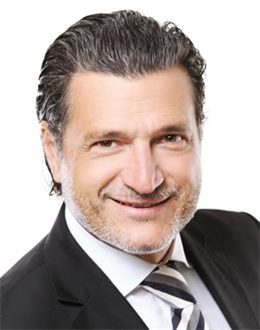
Master concierge Raffaele Sorrentino | Photo: Episodio.de
Nonetheless, we fully believe in providing a world-class concierge service. Most superior hotels have one or two concierges who are part of the internationally renowned Les Clefs d’Or network — we have five of them working for us.
The work of a concierge is all about being well-organized. Whatever major event will come to the city within the next two years, a good concierge will always get tickets and keep them in a safe place. So if an event is then sold-out we will still have tickets.
Q | One specialty about Berlin are low nightly rates. What may cost 299€ in London or Paris may just cost 99€ in Berlin.
Why is that? Is Berlin just “poor, but sexy” or is there a deeper reason behind it?
Klaus Wowereit’s quote of 2004 about Berlin being poor but sexy was good marketing for the time ten years ago. But today, an image of being poor will rather keep potential guests from coming to Berlin.
You have to understand even today Berlin is a city still under development. The infrastructure is far from being perfect, just think about Berlin’s new airport that has been under construction for a decade now. Also, Berlin does not have a conference center of international appeal.
Another thing to know is that hotels in the big capitals get a lot of bookings through local companies. Now, if you have a city that is “poor” then this massive factor falls flat. What we need to do is grow general tourism. So far, this is going well. Berlin is turning toward 30 million visitors per year.
But we are not there yet. So what we have right now is a lot of supply with not enough demand. That, of course, dampens the rates.
Q | Talking about Berlin, you have been a resident of the city since 2014. What aspect of Berlin do you like best? And what could you do without?
What I really like about Berlin is the variety. The number of galleries, museums and restaurants is breathtaking. Berlin virtually offers something to everyone. Whatever
interest and whatever budget, everything is well-covered.
In my point of view, this also happens to be Berlin’s downside. With such endless options, what does Berlin really stand for? Often this can be quite hard to tell. As a non-native of Berlin I have to say that the city has has no classic city center, and I somewhat miss that feature. On the other hand you may say that Berlin has many centers.
The Hotel Adlon Berlin is located just a mere 100 meter away from the Brandenburg Gate, Berlin's trademark sight| Photo: Hotel Adlon
Q | You have a point here. Berlin is indeed very decentralized. Especially with all the Kieze that act as mini-cities within the city.
You see? Guests often ask me about directions to downtown Berlin. And all I can reply is: You are right there! [laughs]. We are located a stone’s throw away from the Brandenburg Gate – but what exactly is downtown Berlin?
Is it the Brandenburg Gate? Or rather the Hackescher Markt? Or Berlin-Friedrichstraße? Or Kurfürsten Damm? It can be hard to make out. For me, Mitte is the traditional center of Berlin and I am happy to be here.
Q | Our last question is a personal one: among your colleagues you have earned the reputation of having a sense of humor. How does humor relate to the sincerity of a superior hotel?
Naturally I am serious about my work. As the Managing Director, I’m overseeing all action and am ultimately responsible for the hotel’s flawless functioning. However, that does not mean I have to take myself too seriously all the time.
With the Adlon we are in the position to be at our best every single day. We are expected to deliver outstanding guest experiences and we succeed in that. As you can imagine, it does not always come easy. You can become overly focused quickly and then your energy is drained while you do not see much results.
It is important to stay focused, but without getting stiff. Without losing flexibility. This is the only way to achieve above-average results on a daily basis. And having a good sense of humor is extremely helpful with that.
END OF INTERVIEW
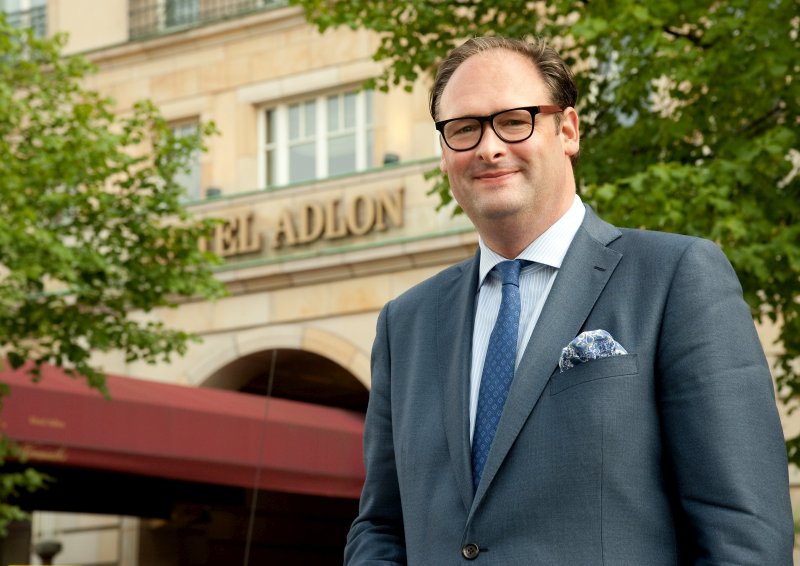
Emile Bootsma at the Adlon's main entrance | Photo: Hotel Adlon
Emile Bootsma
The 42 year-old became the Adlon’s General Manager in September 2014.
A native of Groningen, Netherlands Mr Bootsma has previously held positions in South Africa, Beijing, Munich and Hanover. With the Adlon Berlin he is supervising over 470 employees, ensuring the high standards of Germany’s most-renowned hotel.



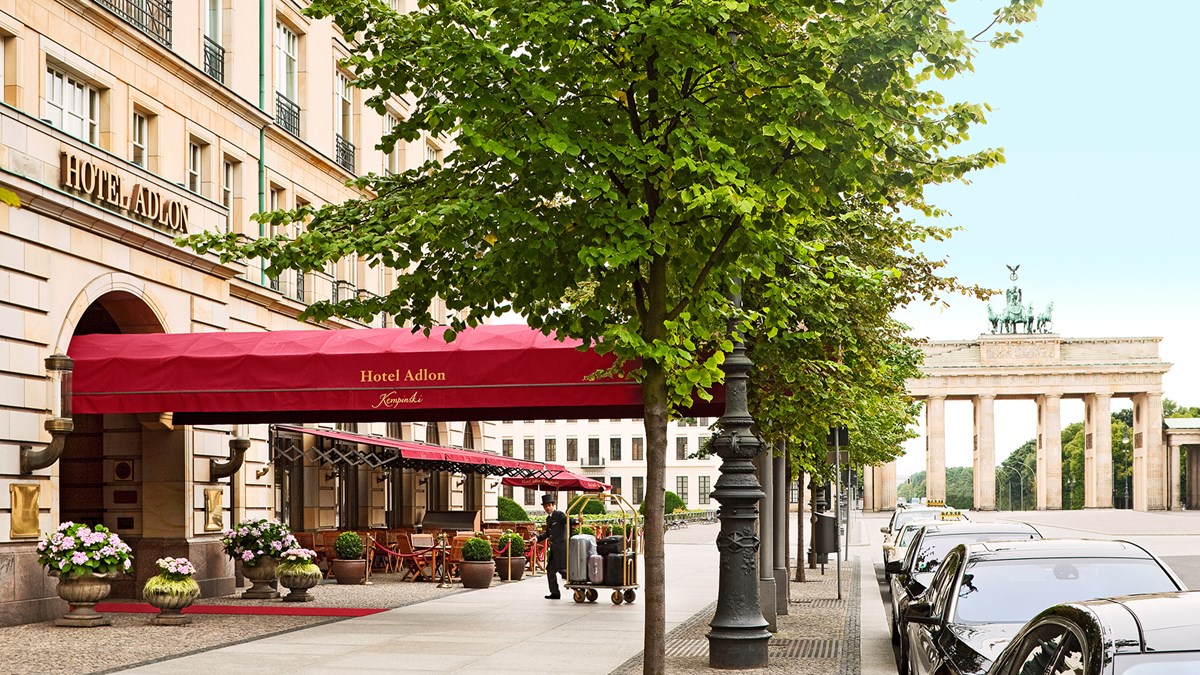

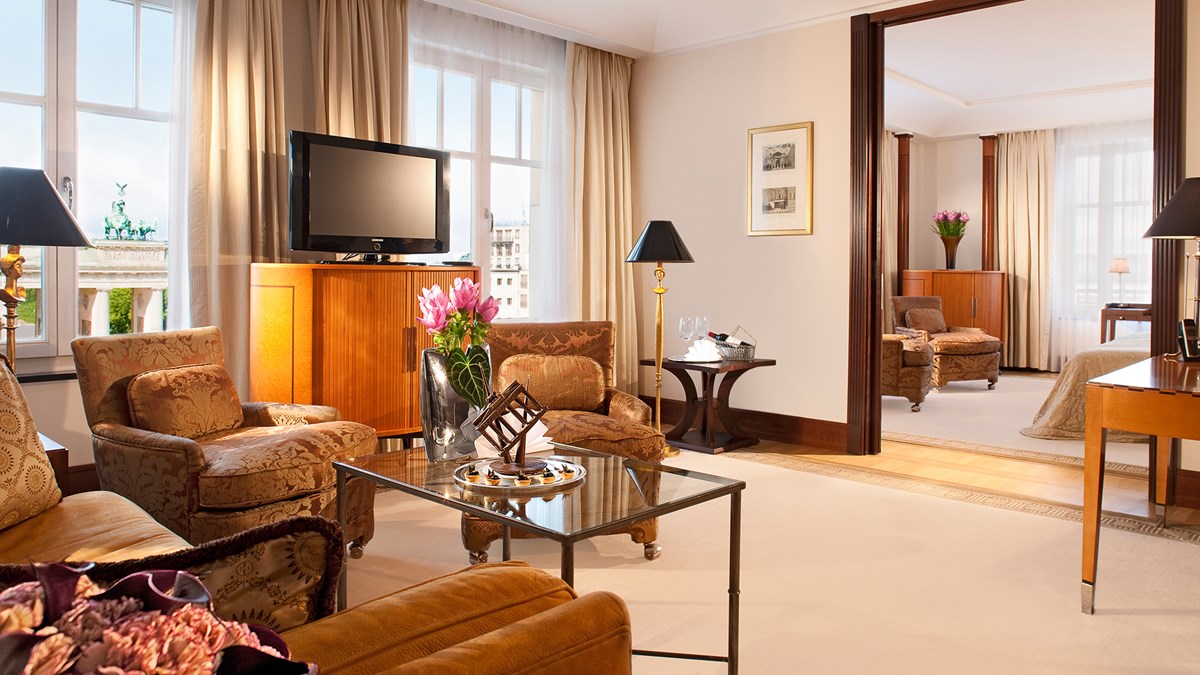
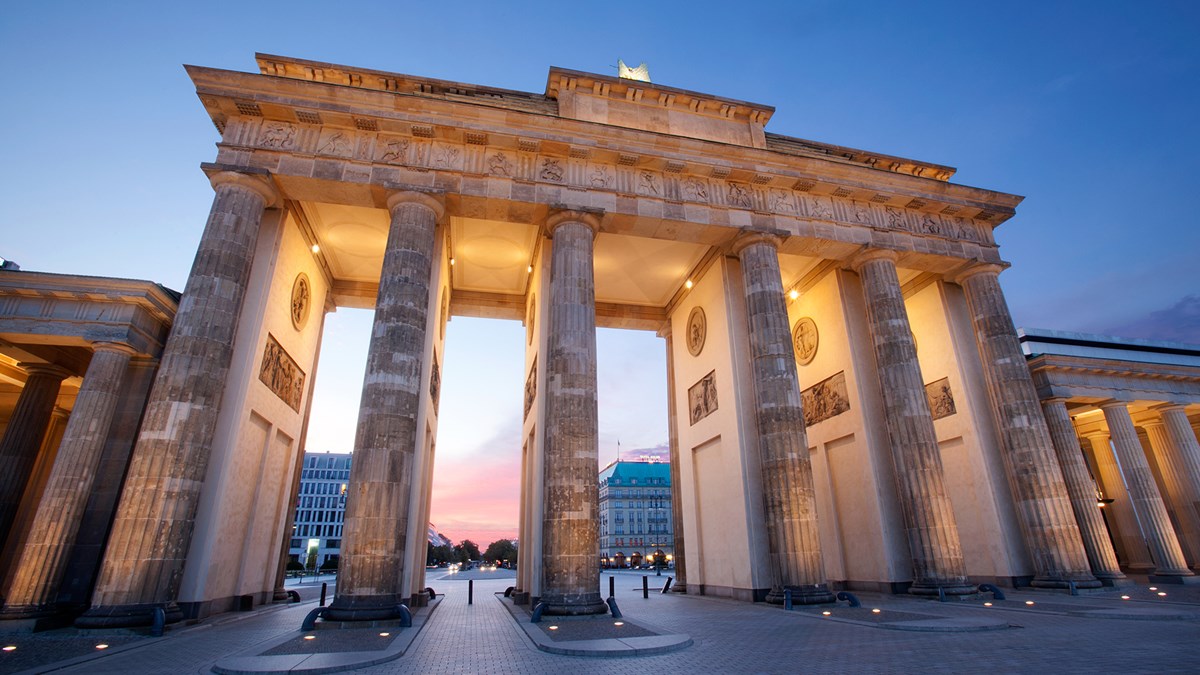
![The Urban Explorer: Introducing Duncan J.D. Smith [Interview]](https://euromentravel.com/wp-content/uploads/2016/09/Duncan-J.-D.-Smith-exploring-Montenegro-245x148.jpg)


Leave a Reply